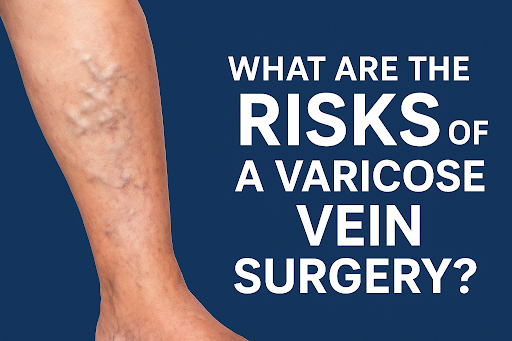When it comes to vein care, finding the right specialist can make all the difference in your health and well-being. With numerous options available, it’s essential to know how to identify a quality vein care provider. Whether you’re dealing with varicose veins, spider veins, or more serious vein conditions, following these steps can help ensure that you receive top-notch treatment.
Here are 8 steps to finding quality vein care near you:
1. Identify Your Specific Needs
Before searching for a vein care specialist, it’s important to understand your condition. Are you looking for cosmetic treatment for spider veins, or do you have more serious concerns such as chronic venous insufficiency or varicose veins? Knowing what type of treatment you need will help you find a clinic that specializes in that area.
Make a list of your symptoms, concerns, and the outcomes you’re hoping for. This can be useful when consulting with a specialist, ensuring you receive the most appropriate care.
2. Check for Vein Care Specialization
While many medical professionals offer vein care services, not all have specialized training in the field. Look for clinics or doctors who specialize in venous conditions. A vascular specialist, phlebologist, or an interventional radiologist with experience in vein care are good options. Specialization ensures that your doctor has the necessary expertise to handle both routine treatments and more complex cases.
3. Evaluate the Clinic’s Technology
The quality of vein care is often linked to the technology used in diagnosis and treatment. Modern, minimally invasive techniques such as endovenous laser treatment (EVLT), ultrasound-guided sclerotherapy, and radiofrequency ablation have become the gold standard. Before selecting a clinic, ask about the technology they use. Clinics with advanced diagnostic tools and state-of-the-art equipment are more likely to offer effective and safe treatments.
4. Read Reviews and Testimonials
Patient reviews can provide insight into the experiences others have had with a particular vein care provider. Look for reviews that mention the professionalism of the staff, the cleanliness of the facility, and the effectiveness of treatments. Online platforms like Google Reviews, Healthgrades, or RealSelf often feature patient testimonials, which can help guide your decision.
Pay close attention to feedback about post-treatment care, as this is a crucial part of vein care that ensures long-term success.
5. Ask About the Doctor’s Experience
In addition to specialization, experience is key. A doctor who has performed hundreds or thousands of vein procedures is more likely to deliver successful results. During your consultation, don’t hesitate to ask how many years of experience the doctor has and how frequently they perform the procedures you’re interested in.
Experienced vein doctors are better equipped to handle complications and provide tailored advice based on your condition and health history.
6. Ensure Comprehensive Diagnostics
Quality vein care begins with an accurate diagnosis. Ask about the clinic’s diagnostic process to ensure it is thorough. A reputable vein care provider will offer a detailed evaluation, typically involving Doppler ultrasound to assess blood flow and identify problematic veins.
A thorough diagnostic process helps determine the most appropriate treatment plan and ensures your vein issues are properly addressed.
7. Consider Insurance Coverage
Vein treatments can range from cosmetic procedures to medically necessary interventions. If your treatment is deemed medically necessary, it may be covered by insurance. Before committing to a particular provider, verify if they accept your insurance. You should also inquire about the specific coverage for procedures like sclerotherapy, vein ablation, or ultrasound diagnostics.
If insurance doesn’t cover your treatment, ask about payment plans or financing options, especially for elective or cosmetic procedures.
8. Schedule a Consultation
Once you’ve identified a few potential vein care providers, schedule consultations to get a feel for the clinic, the doctor, and the treatment approach. A quality vein care specialist will take the time to explain your condition, discuss all treatment options, and answer your questions.
During the consultation, evaluate the clinic’s environment and the demeanor of the staff. A welcoming, patient-focused atmosphere often indicates a high level of care and attention to detail.
Conclusion
Finding the right vein care specialist is crucial to your health and comfort, whether you’re seeking treatment for a medical issue or a cosmetic concern. By following these 9 steps, you can confidently navigate the process of selecting a qualified vein care provider. From checking credentials and clinic technology to reading reviews and asking the right questions, these steps will guide you to making an informed decision.
If you’re ready to find a vein care specialist near you, take the first step today by contacting an expert for a consultation. Your legs—and your health—deserve the best care.








